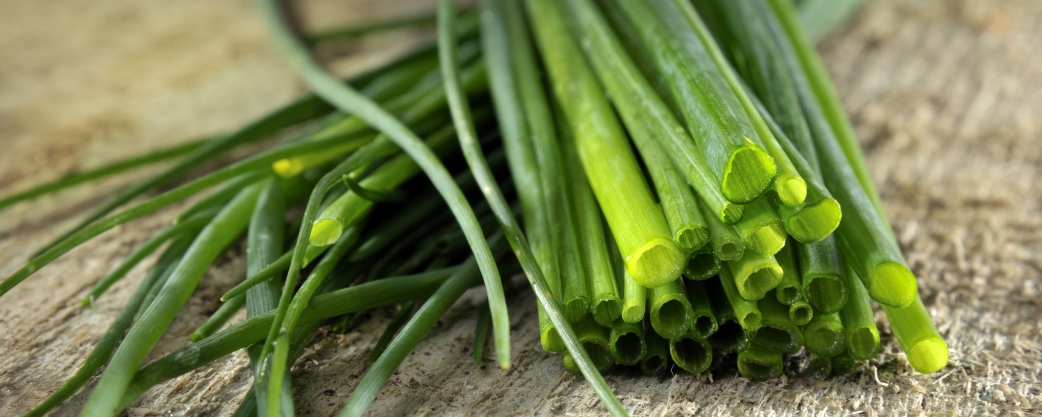Chives is the common name of Allium schoenoprasum, an edible species of the Allium genus. It hence belongs to the same family as onion, leeks and garlic. They are a hardy, drought-tolerant perennial growing to about 10-12 inches tall. They grow in clumps from underground bulbs and produce round, hollow leaves that are much finer than onion. Chives are cool-season, cold-tolerant perennials that are planted in early spring. Be mindful when planting this herb, as it will take over your garden if the flowers are left to ripen (the flowers scatter the seeds). However, this plant is easy to dig up and moved if it overwhelms your garden. Chives prefer full sun. Soil needs to be moist, fertile, rich, and well-draining. It is important to give chives consistent watering throughout the growing season for high yields. Moisten the soil thoroughly when watering
Health benefits of chives includes:
- Treats digestive issues: – The allyl sulfides and other unique organic compounds found in chives deliver similar benefits to the body as garlic, and as such, can effectively ease digestive discomfort. Furthermore, chives have natural antibacterial qualities that can eliminate a wide range of bacteria, particularly those in the salmonella family, which can wreak havoc on your gastrointestinal system.
- Improves Heart health: – One of the most important organic compounds found in chives is allicin, which has recently been linked to reduced levels of “bad” cholesterol in the body and improved heart health. Allicin is also connected to lowering blood pressure; when combined with the vasodilatory effects of the potassium found in chives, this unassuming herb can have a major impact on reducing cardiovascular strain. Furthermore, another organic compound found in chives, quercetin, has been directly connected to lowering cholesterol levels and plaque in the arteries, effectively preventing atherosclerosis and lowering your risk for stroke and heart attacks.
- Bone health: Vitamin K is related to bone health, as it helps to maintain bone integrity and density. Chives contain vitamin K, so they may contribute to bone strength. Vitamin K is very important in the maintenance of bone mineral density and bone integrity. As we age, our bone mineral density begins to drop, leading to conditions like osteoporosis and exacerbating inflammatory conditions like arthritis. High levels of vitamin K, like those found in chives, can help to produce osteocalcin, which is a key part of maintaining mineral density in the bones.
- Cancer Prevention: – One of the most exciting areas of research for all members of the Allium genus is the role of quercetin in preventing certain types of cancers. Although research is still ongoing, early results show that quercetin can effectively prevent a wide range of cancers, including breast, prostate, colon, lungs, and ovaries. The antioxidant activities of vitamin C and vitamin K contribute to this prevention as well, helping to reduce levels of free radicals in the body that can hasten the spread or appearance of cancerous cells. Zeaxanthin and lutein, two other antioxidant compounds found in chives, have been linked to lower chances of oral cancers.
Chives are not typically considered to be an allergenic substance and very few reports of negative reactions exist. However, an excessive amount of chives, with a high concentration of powerful organic compounds, can cause stomach discomfort. If you are allergic to onions or other members of the Allium genus, consult a medical professional before adding chives to your regular diet.

